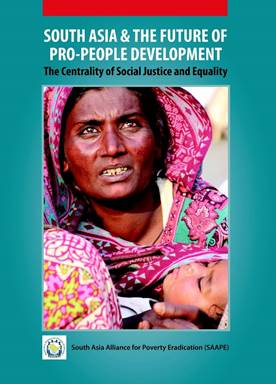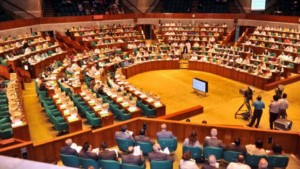Dhaka, Sept 15 (UNB) – People living in poverty around the world are facing increasing multiple threats, including climate change and the global economic crisis, but the political will to tackle the issues is lacking, a United Nations human rights expert has warned in his maiden report to the Human Rights Council.The first UN Special Rapporteur on the right to development, Saad Alfarargi, issued a rallying cry for the international community and agencies to wake up to the scale of the problem and step up their responses.
“More than 30 years after the right to development was established in a UN declaration, millions of people around the world are living with the consequences of the failure to deliver it,” he was quoted as saying in a statement UNB received here from Geneva on Friday.
He said negative global trends have their harshest impacts on the poorest sections of society. “People are feeling the impact of the global financial and economic crisis, the energy and climate crisis, and an increasing number of natural disasters.
Add to that the new global pandemics, corruption, the privatization of public services, austerity, and the ageing of the global population, including in developing countries, and the effect is a harsh and worsening impact on the poor, said the UN expert.
“We are witnessing some of the greatest challenges the world has ever seen, without the global commitment to deliver change. People in developing countries are paying a heavy price for global actions beyond their control.”
The Special Rapporteur said the international community could not even agree on exactly what the right to development meant, or how to measure progress, and the issue had become increasingly politicised.
“This political divide has resulted in a low level of engagement of United Nations agencies and civil society in promoting, protecting and fulfilling the right to development,” Alfarargi noted.
He added: “Too many people are unaware that the right to development even exists. We need to raise this low level of awareness, from grassroots organizations to governments, and make sure they are all fully engaged in implementing it.
“The right to development is far from being universally recognized and even further from full implementation,” the Special Rapporteur stressed.
Alfarargi said many of the building blocks for change were already available.
“Global agreements are in place to deliver global solutions,” he said, highlighting the Sustainable Development Goals – which aim to deliver radical change by 2030 – and the Paris agreement on climate change. He highlighted the progress on financing development, set out in the Addis Ababa Action Agenda, and on ways to build safer cities in Sendai Framework for disaster risk reduction.
“All UN agencies, development agencies, financial and trade institutions – in short, any group working for development – should put the right to development at the centre of their work,” the expert added.
“There is an urgent need to make the right to development a reality for everyone,” said Alfarargi who took up his role in May.




